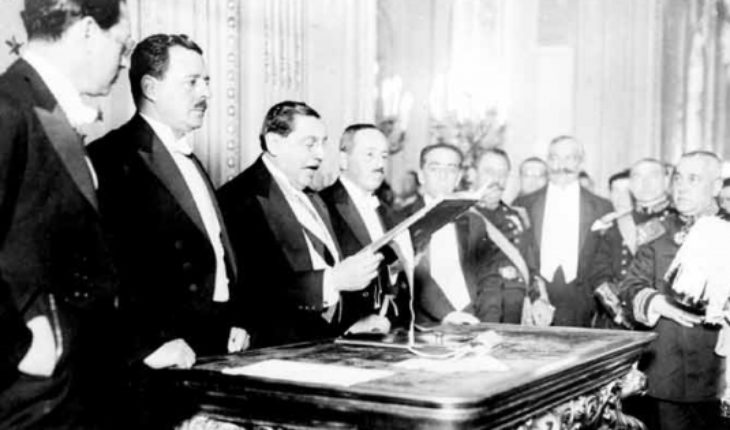even with the reforms of 1989, the Ricardo Lagos and the electoral system, the 1980 Constitution has failed to op Once as a symbol with respect to which the various Republican and democratic political sectors may send to allude to a common framework, to a hub from which to articulate the unit beyond the legitimate differences.
The burden of their origin implies that not only extreme groups, but also the more moderate left and right, not can be found in the Charter, and that this means a hurdle that must be overcome, and not a basis from which it articulates a discussion on the common.
A Constitution which, in the symbolic field, as based on a shared framework is effective condition a political debate which accept differences, and very wide ranges, but in a context where good faith and a collaborative attitude among the adversaries prevail precisely because the framework has been agreed and has letters from Republican and democratic legitimacy.
There will always be areas on the right that will operate in a most recalcitrant vein, sticking to the discourse of economism, depoliticization and negative subsidiarity. There will always be areas on the left which will tilt towards a popular politicization dismissive of Republican principles, such as representation and the division of power. In its disruptive operation, both can count on the fact that we have not a Constitution with an effectively unifying symbolic power in Chile.
It is a task, then, Republican and democratic – forces with which we identify us both, incidentally, from approaches different – explicitly reflect on this problem of starting. If you do not wish it, any agreements or reforms agenda we shall be sent, at some point, gestures decisionistas, hinders a discussion that could be constructive. Moreover, in moments of crisis, this vacuum a fundamental consensus will tend to give rise to an advance of the ends to the right and left, that could compromise our democracy.
Against this pitfall, this deficit of consensus, the question arises: what to do?
Rulers with any historical consciousness there is always claim to be remembered by great works and products. What’s bigger than a new Constitution? It is, in addition, the proposal for a constituent Assembly. With the modification of the electoral system and the incorporation of the broad front in Parliament, the proposal is relativised.
Beyond the procedure: is a new Constitution that is required? In our book “1925: Republican continuity and constitutional legitimacy” (Santiago: Catalonia 2018) disagree with this idea. It happens that a new Constitution would be, to some extent, operate in the shadow of the father, in the shadow of Pinochet. For Pinochet, it was at the behest of Guzmán, who dared to do something that neither Arturo Alessandri, or Diego Portales felt empowered to make: becoming authors of a new Constitution through an absolute decision to establish an order radically new. Alessandri, for the 1925, understood that his was an amendment to the Constitution of 1833 and thus not breaking with the tradition of more than hundred years of the Republic. In 1833, in turn, was raised in their minute as a reform of 1828.
That is, we have a history of nearly two centuries of constitutionalism that breaks in 1980. To enact a new Constitution that leave, now, back in 1980, to assert itself as a new order, reply the refoundational gesture of Pinochet and would sweep away with that bicentennial Republican tradition.
In this context, wouldn’t you have more sense distance themselves reflexively’s eagerness to constituents and, rather than create a new Constitution, restore the 1925 Constitution?
It is not, by the way, ignore the constitutional evolution of the last decades, of simple and blindly take the text and replicate it. Back to 1925, more than a simple reference to the text (which should be modified, by the way), would seek to repair the symbolic role of the last Constitution.
1925 marks an axial moment of our Republican history, connecting our constitutional future with almost all of the political history of the country. Moreover, linking the nineteenth-century Republican order, with the so-called Republic of commitment, during which political order reaches a progressively more democratic complexion. If the Chilean nation is formed during the 19th century, the 20th, thanks to the bases which the Constitution of 25 people is formed in the democratic sense of the expression.
We propose – that is the effort of the book in question – the thoughtful restoration of the Constitution of 25, incorporating the innovations of the subsequent constitutional developments. It could thus become Foundation of a common framework that expands to Republican and democratic forces on the left and the right, and as a point of reference and consideration had a tradition that brings us to democracies older planet. Perhaps it would be the basis of a dialogue and a political order more open to possible disagreement on the precise measure in that rests on a fundamental consensus.
The content in this column of opinion is the sole responsibility of the author and do not necessarily reflect the editorial line nor the counter position.





